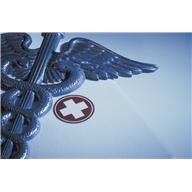
Nurse's Nook

When Should I Keep My Child Home From School?
Students will be sent home from school or should be excluded from school (per Regulation 757-1) for the following reasons:
1. Fever of 100.4 degrees and over - exclude until student has been fever-free for at least 24 hours.
2. Conjunctivitis (pink eye), strep infections, ringworm and impetigo are all infections and must be treated with medication for a minimum of 24 hours before returning to school. Please do not allow affected students back before this time so that other students are not infected unnecessarily.
3. Rash of unknown origin (especially if accompanied by a fever).
4. Head injury.
5. Severe coughing or difficulty breathing.
6. Colds - a child with thick or constant nasal discharge should remain home.
7. Diarrhea or vomiting - exclude until student has been symptom-free for at least 24 hours.
8. Stiff neck associated with a fever and/or a recent injury.
9. Inadequate immunizations with known disease outbreak in school.
10. Refer to the VDOH "Communicable Disease Reference Chart for School Personnel" for other exclusions/information.
1. Fever of 100.4 degrees and over - exclude until student has been fever-free for at least 24 hours.
2. Conjunctivitis (pink eye), strep infections, ringworm and impetigo are all infections and must be treated with medication for a minimum of 24 hours before returning to school. Please do not allow affected students back before this time so that other students are not infected unnecessarily.
3. Rash of unknown origin (especially if accompanied by a fever).
4. Head injury.
5. Severe coughing or difficulty breathing.
6. Colds - a child with thick or constant nasal discharge should remain home.
7. Diarrhea or vomiting - exclude until student has been symptom-free for at least 24 hours.
8. Stiff neck associated with a fever and/or a recent injury.
9. Inadequate immunizations with known disease outbreak in school.
10. Refer to the VDOH "Communicable Disease Reference Chart for School Personnel" for other exclusions/information.
FOOD HELP LINE
703-794-4668.
Families can call and agents will help direct you to their nearest food pantry based on your location or they will be entered into a system to get a delivery if they do not have transportation or are immune compromised.
REMINDER:
All medications on file in the clinic must be picked up by the last day of the school year. Only parents/guardians can transport medication; students are not permitted to carry or transport medication. Any medication remaining in the clinic at the end of the school day, on the last day of school, will be disposed of per Regulation 757-4. Please call the clinic if you have any questions.
Food Allergies
REMINDER:
All medications on file in the clinic must be picked up by the last day of the school year. Only parents/guardians can transport medication; students are not permitted to carry or transport medication. Any medication remaining in the clinic at the end of the school day, on the last day of school, will be disposed of per Regulation 757-4. Please call the clinic if you have any questions.
Food Allergies
There may be students in your child's classroom who have severe, life threatening allergies to nuts or other foods. These may include peanuts, peanut butter, tree nuts (pecans, walnuts, almonds, other nuts), nut oils(peanut) and nut flavorings (extracts). Allergic reactions are triggered not only by ingesting these products but through touch and inhalation as well. Even small amounts of residue can cause an allergic reaction. Other food allergies are milk, eggs, soy or wheat. Artificial food dyes are also an allergen.
We make every effort ensure their safety and health are not jeopardized, but we need your help. You can help by sharing with your child a few precautions they can take to protect their classmates.
***If your child has eaten peanut/tree nut products before coming to school or during lunch, please ask them to wash their hands and face thoroughly before entering the classroom. Frequent hand washing also prevents the spread of germs!
***If you are considering celebrating your child's birthday at school, please bring pencils, stickers, erasers or other non-edible treats. A non-edible treat would be something ALL students could enjoy. These simple measures will greatly reduce the possibility of exposure and potential severe reaction while attending school. Thank you in advance for your consideration in making school a safer environment for these children. If you have any questions, please feel free to contact me.
We make every effort ensure their safety and health are not jeopardized, but we need your help. You can help by sharing with your child a few precautions they can take to protect their classmates.
***If your child has eaten peanut/tree nut products before coming to school or during lunch, please ask them to wash their hands and face thoroughly before entering the classroom. Frequent hand washing also prevents the spread of germs!
***If you are considering celebrating your child's birthday at school, please bring pencils, stickers, erasers or other non-edible treats. A non-edible treat would be something ALL students could enjoy. These simple measures will greatly reduce the possibility of exposure and potential severe reaction while attending school. Thank you in advance for your consideration in making school a safer environment for these children. If you have any questions, please feel free to contact me.
Environmental Allergies and Medication
If your child suffers from seasonal allergies and takes medication to relieve symptoms, PLEASE give allergy medication, to include eye drops, EACH day prior to school. This will help avoid time spent away from the classroom and important instructional time. Allergy medications should be given every day during allergy season so they will work properly.
Head Lice
Procedure for the Control of Head Lice
PWCS follows the recommendations of the Centers for Disease Control, American Academy of Pediatrics, Harvard School of Public Health and the National Association of School Nurses. Students with live lice do not need to be sent home early from school; they can go home at the end of the day. HOWEVER; following treatment at home that evening, a parent/guardian must accompany the child to school the following day for recheck by the school nurse or designee prior to the student returning to the classroom.
Please see attached Regulation 753-2 below for further information. Head Lice Regulation 753-2
Procedure for the Control of Head Lice
PWCS follows the recommendations of the Centers for Disease Control, American Academy of Pediatrics, Harvard School of Public Health and the National Association of School Nurses. Students with live lice do not need to be sent home early from school; they can go home at the end of the day. HOWEVER; following treatment at home that evening, a parent/guardian must accompany the child to school the following day for recheck by the school nurse or designee prior to the student returning to the classroom.
Please see attached Regulation 753-2 below for further information. Head Lice Regulation 753-2
Tips for flu season
Get the seasonal influenza vaccine. You can get this vaccine from your doctor, health department, and many pharmacies and retail stores. If you have an existing health condition, consult with your doctor before receiving this vaccine.
Stay home when you are sick. Avoid work, school and errands when you are sick. This will help prevent others from catching your illness. Also, stay away from people that are sick.
Cover your nose and mouth with a tissue when you cough or sneeze, then throw it away. If a tissue is not available, cover your nose and mouth with your sleeve, not your hand.
Wash your hands often with soap and water, especially after you cough or sneeze. If soap and water are not available, use an alcohol-based hand sanitizer.
Avoid touching your eyes, nose or mouth! Germs are spread this way.
Clean and disinfect frequently touched surfaces and objects, especially when someone is sick.
Stay home when you are sick. Avoid work, school and errands when you are sick. This will help prevent others from catching your illness. Also, stay away from people that are sick.
Cover your nose and mouth with a tissue when you cough or sneeze, then throw it away. If a tissue is not available, cover your nose and mouth with your sleeve, not your hand.
Wash your hands often with soap and water, especially after you cough or sneeze. If soap and water are not available, use an alcohol-based hand sanitizer.
Avoid touching your eyes, nose or mouth! Germs are spread this way.
Clean and disinfect frequently touched surfaces and objects, especially when someone is sick.
Allergy and Asthma Network
Heads Up to Schools: Know Your Concussion ABC's
Neighborhood Safety Network
Health and Hygiene Practices
Henry the Hand Handwashing Campaign
Clean Up! A Kids Guide to Handwashing
95210: The Zip Code to Healthy Living
We Can! Ways to Enhance Children's Activity and Nutrition
Snack Safely
Heads Up to Schools: Know Your Concussion ABC's
Neighborhood Safety Network
Health and Hygiene Practices
Henry the Hand Handwashing Campaign
Clean Up! A Kids Guide to Handwashing
95210: The Zip Code to Healthy Living
We Can! Ways to Enhance Children's Activity and Nutrition
Snack Safely
Nurse's Notes
The clinic is always in need of clothes to loan to students for those unexpected accidents that occur during the school day. If you have clothes your student has outgrown or no longer wears, please consider donating them to the clinic. Paper or plastic cups and tissues are also always needed. Your generosity is much appreciated! In addition, if your student has borrowed clothes from the clinic, please wash them and return them to the clinic as soon as possible so they may be available to other students.
| What are the health requirements for enrolling my child in school? |
 Per Virginia Code and PWCS Regulation 723-5 and Regulation 723-6, a comprehensive physical examination to include state required immunizations is required for students entering Kindergarten and all new students to the county grades 1 through 5.
Students are not allowed to start school without a physical and immunization record on file. Required Immunizations
Where can I get a physical or immunizations? Immunizations can be obtained at your doctor's office, military treatment facility, or the Prince William Health District. A physical can be completed at your doctor's office, military treatment facility, urgent care clinics or the Greater Prince William Community Health Center. View School Entrance Physical Form (PDF)  What if my child has a special health condition? What if my child has a special health condition?Special health conditions can be managed at school. If your student needs medication at school, it needs to be brought to the clinic by an adult, in the original, sealed container, and accompanied by the proper paperwork. The medication must also be age appropriate. Please visit Prince William County Public Schools website to download regulations listed below: Allergic Reactions - Regulation 757-2 Asthma Action Plan - Regulation 757-5 Health Treatment Plans - Regulation 757-3 Authorization for Medication Administration - Regulation 757-3, Attachment V (PDF) Diabetes Regulation 757-6 Seizure Regulation 757-7 |
